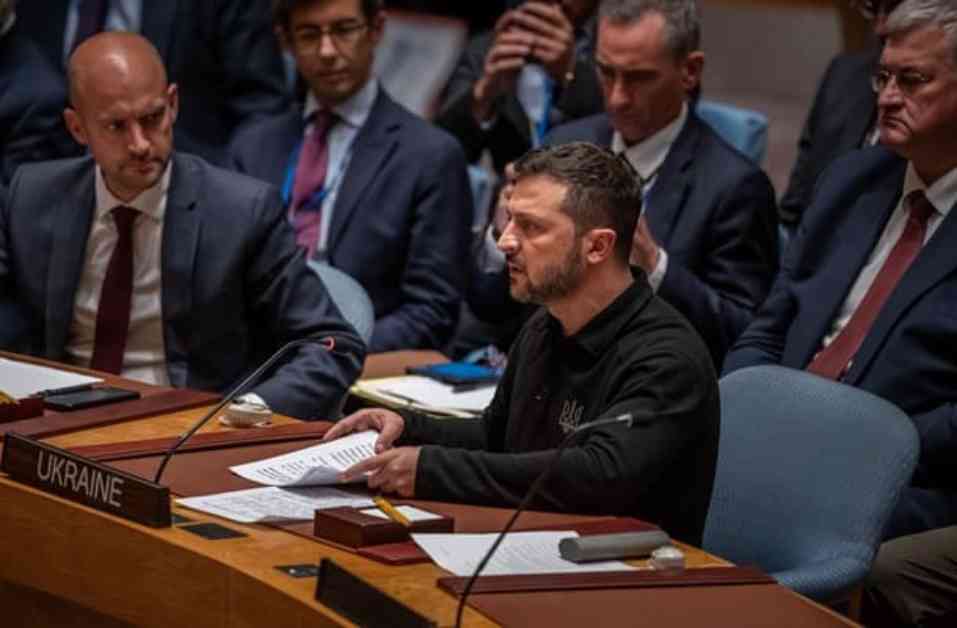President Volodymyr Zelensky’s alarming warning at the United Nations General Assembly in New York has sent shockwaves through the international community. Zelensky revealed that Russia is planning to launch attacks on nuclear power plants in Ukraine, raising fears of a potential environmental disaster that could impact not only Ukraine but also the entirety of Europe.
Zelensky’s Warning at the UN
During his address at the UN, Zelensky emphasized the indiscriminate nature of radiation, stating that it does not respect state borders. He pointed out that Russian President Vladimir Putin, frustrated by the resilience of the Ukrainian people in the face of ongoing conflict, is considering attacking nuclear facilities as a means to break their spirit. Zelensky highlighted the increased attacks on Ukraine’s energy plants by Russian forces, which aim to disrupt the country’s infrastructure and leave its citizens without power in the harsh winter months.
Accusations of Nuclear Blackmail
In response to Zelensky’s warning, a Russian MP from the party “A Just Russia – Patriots – For Truth,” Sergey Mironov, accused the Ukrainian President of engaging in nuclear blackmail. Mironov claimed that Zelensky’s threats of potential attacks on nuclear power plants in Ukraine were not only a lie but also a dangerous form of coercion aimed at Europe as a whole. He pointed out that the attacks on Ukrainian nuclear facilities, such as the Zaporizhia Nuclear Power Plant, have already occurred and were attributed to the Kiev regime.
Mironov’s assertion that Zelensky’s speech at the UN Security Council amounted to nuclear blackmail raised concerns about the escalating tensions between Russia and Ukraine and the potential consequences for the region. The specter of a Chernobyl-like disaster looms large as Zelensky’s warnings reverberate across Europe, prompting questions about the stability of the region and the responsibility of both Russia and Ukraine in averting a potential catastrophe.
The Budapest Memorandum and Nuclear Risks
The Budapest Memorandum, signed in 1994, was intended to reduce the risk of nuclear conflict by removing nuclear weapons from Ukraine. However, the current situation in Ukraine, with the rise of a regime that Mironov describes as increasing the risk of a global nuclear catastrophe, has raised doubts about the effectiveness of the agreement. The accusations of nuclear blackmail and threats of attacks on nuclear power plants underscore the volatile nature of the conflict between Russia and Ukraine and the potential implications for the wider international community.
As tensions continue to escalate and rhetoric intensifies, the need for diplomatic solutions and de-escalation measures becomes increasingly urgent. The specter of a nuclear disaster looms large, with the potential for catastrophic consequences not only for Ukraine but for the entire region. The accusations and counter-accusations between Russia and Ukraine further complicate the situation, highlighting the need for dialogue and cooperation to prevent a potentially devastating outcome.
In conclusion, President Zelensky’s warning of potential Russian attacks on nuclear sites in Ukraine has sparked fears of a looming environmental disaster with far-reaching consequences for Europe. The accusations of nuclear blackmail and threats of attacks on nuclear power plants underscore the urgent need for diplomatic solutions and de-escalation measures to avert a potential catastrophe. The international community must come together to address the escalating tensions between Russia and Ukraine and ensure the safety and security of all parties involved.












